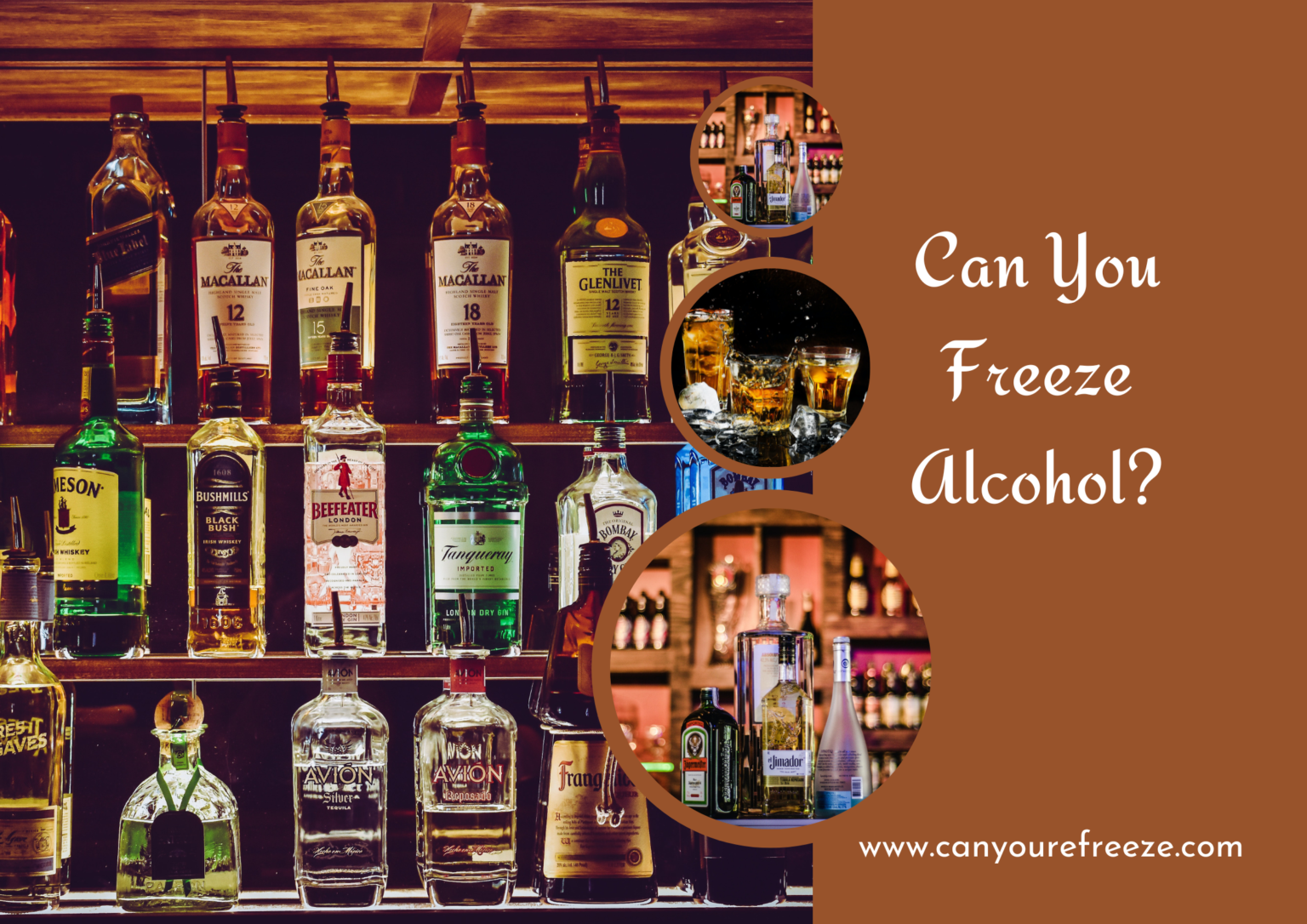Most liquors need a little chill to help tamp down the bite, but frozen might be taking a bit too far. If youve ever wondered why your vodka martini doesnt freeze solid in the martini shaker, or why your schnapps doesnt congeal in the freezer, its because the liquors are not reaching their freezing temperatures. The freezing point of a particular liquor depends on its proof, and alcoholic beverages with the same proof will freeze at the same temperature — meaning that 70-proof liquors, no matter what kind or brand, all meet the same freezing cold fate.
Proof is an alcohol gauging system that is reserved for distilled spirits such as liquors and liqueurs — wines, beers and mixed drinks are not assigned proofs. A liquors proof stems directly from its alcohol by volume, or ABV, which is the percentage of ethyl alcohol or ethanol found in the beverage. Proof is double the ABV, so a 70-proof spirit actually has an ABV of 35 percent. A liquor with a lower proof has a greater concentration of water in it, which means that its freezing point will be higher than a liquor with a higher proof.
Liquors and liqueurs with a proof of 70 are actually at the lower end of the spectrum when it comes to liquor strength, but many different types of common liquors, such as rum, vodka and some specialty flavored whiskeys, have 70-proof versions. Many alcoholic beverages with 70 proof have a higher concentration of sugar, added during or after the distillation process — these include flavored vodkas and rums as well as fruit-flavored brandies and liqueurs. A few other 70-proof liqueurs include coffee liqueurs, some of which are tequila-based, and a few whiskey-based liqueurs.
What Percentage Alcohol Does Not Freeze? All alcohol will freeze at a cold enough temperature, but any proof higher than 50 will not freeze in a conventional freezer. This covers the majority of harder spirits you may buy, but beer, wine, and liqueurs will certainly freeze with enough time.

She Blinded Me With Science
The freezing point of different alcohol proofs is based on the concentration of ethanol or ethyl alcohol mixed with water. Pure ethanol freezes at -173.2 degrees Fahrenheit or -114 degrees Celsius, and water freezes at 32 degrees F or 0 degrees C — so the freezing point of 70-proof alcoholic beverages falls somewhere between. According to the Department of Physics at the University of Illinois Urbana-Champaign, a solution with 30 percent ethanol concentration, or 60 proof, has freezing point of 5 degrees F or -15 degrees C, and one with 40 percent ethanol concentration, or 80 proof, freezes at -10 degrees F or -23 degrees C — therefore, 70-proof alcoholic beverages freeze around -2.5 degrees F, or -19 degrees C.
Worrying if youll accidentally freeze your booze without some high-grade refrigeration unit isnt necessary. The U.S. Food and Drug Administration recommends that you keep your refrigerators temperature at no higher than 40 degrees F, or 4 degrees C, and your freezers temperature around 0 degrees F, or -18 degrees C. Both temperatures are warmer than the freezing point (2.5 degrees F or -19 degrees C) for 70-proof alcoholic beverages Chilling liquor in a cocktail shaker will also not freeze 70-proof liquor; the friction from the repetitive motion will not let the liquor reach that temperature.
Chance E. Gartneer began writing professionally in 2008 working in conjunction with FEMA. He has the unofficial record for the most undergraduate hours at the University of Texas at Austin. When not working on his childrens book masterpiece, he writes educational pieces focusing on early mathematics and ESL topics.
Will 70% alcohol freeze?
FAQ
Will 70% isopropyl alcohol freeze?
What percent alcohol is OK to put in freezer?
Why should you not put alcohol in the freezer?
How long can liquor stay in freezer?
Can you put alcohol in the freezer?
Can be placed in the freezer. Beverage examples include gin, whiskey, vodka, etc. Since alcoholic beverages contain both water and alcohol, the temperature at which each drink freezes will also vary. Pure alcohol, for instance, freezes at -173°F, whereas beer freezes at just 23°F. Here’s why this happens:
Can alcohol be frozen?
To freeze pure alcohol, the liquid must reach -173 degrees Fahrenheit. Typical hard alcohol is 80 proof, which means it is 40 percent ABV. This liquor must reach a temperature of -17 degrees Fahrenheit to freeze. An average home freezer will never reach this extreme temperature, so many liquors can be stored in the freezer.
Is 64-proof liquor safe to freeze?
64-proof liquor (32% ABV) with a -10 °F (-23 °C) freezing point is OK to freeze. Liqueurs like amaretto and flavored whiskey Fireball fall into this range of alcohol content, so they’re perfect for your next winter party!
Will a cocktail shaker freeze 70-proof liquor?
Both temperatures are warmer than the freezing point (2.5 degrees F or -19 degrees C) for 70-proof alcoholic beverages Chilling liquor in a cocktail shaker will also not freeze 70-proof liquor; the friction from the repetitive motion will not let the liquor reach that temperature.
